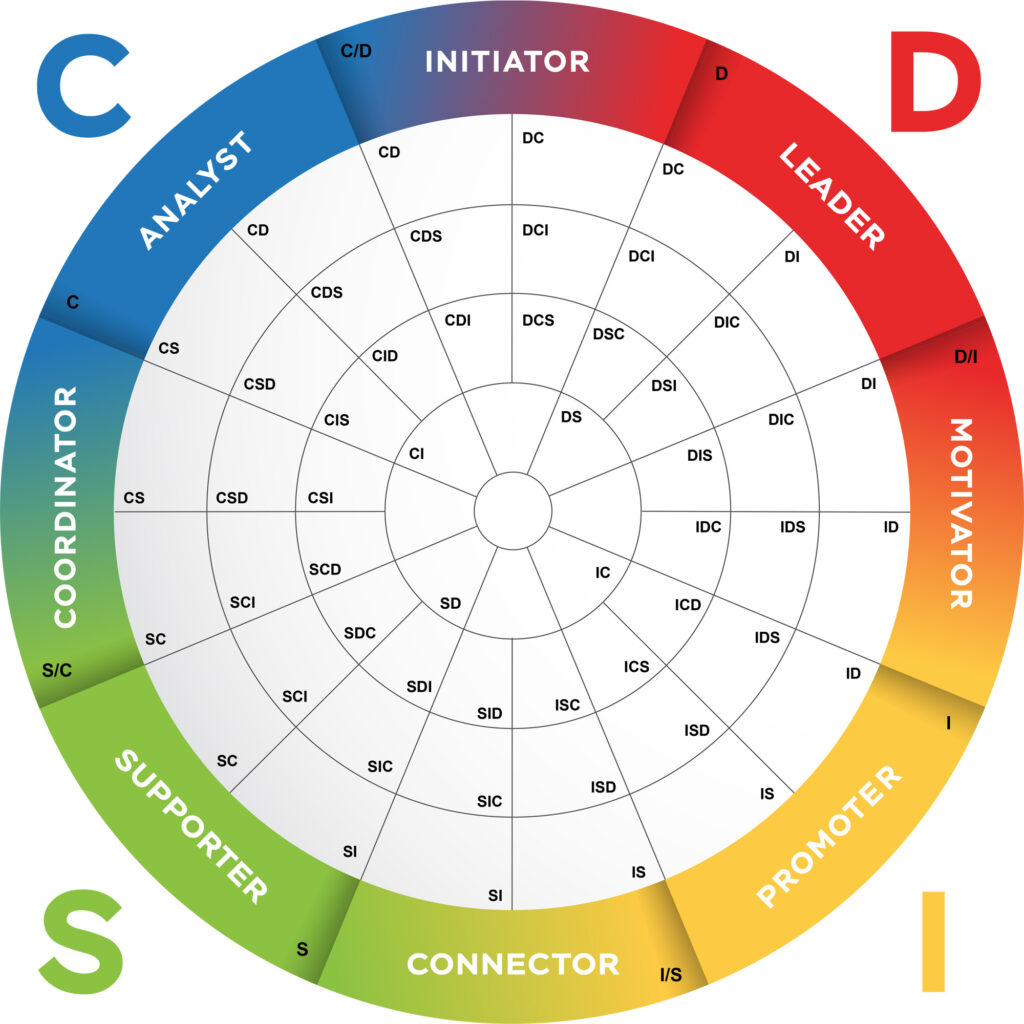
DISC is a multi-purpose instrument. For instance, it can be used in training, coaching, career guidance and also in recruitment. DISC can serve as a starting point. It does not mean that DISC can solve and explain everything, but the DISC behavioural analysis can provide the necessary insights. Also when it comes to recruitment and selection of new employees. For instance, the model is useful when putting together job descriptions. Here you can look at the individual characteristics that go with the job but also at the team the person will be joining.
Job requirements and DISC
With DISC, there is no success or failure. No score is better than the other. However, certain behaviour can be more effective in one situation than other. When we look at job descriptions and how DISC can help with that, we don’t refer to the knowledge and training requirements for the job in question. We are mainly talking about the competencies in the form of behaviour.
Identify the competences
What skills go with the job? Look at what the job entails and what qualities go with it. Is it a job that requires someone to show a lot of initiative or have a lot of contact with customers? Should someone be able to come up with creative solutions or will they have to keep an overview? It does not have to be an inexhaustible list, but focus on the most important characteristics.
The characteristics of DISC
From the desired traits, you can see which DISC behavioural styles best match them. So what is important in terms of preferred behaviour that should be present? What competencies should the candidate have in any case in order to enjoy the work? You can then take these into account when drawing up the job profile.
We want to emphasise that from DISC analysis alone, it cannot be determined whether someone is suitable for a job. DISC also does not mean that someone cannot show different behaviour. However, it will probably cost more energy if a person’s preferred behaviour is used for a long time. You get the best out of people when they actually do work where their qualities lie.
For example: Are you looking for a manager who has to ensure that new processes are implemented, where decisions have to be made and, above all, the big picture has to be defined? In such a case, a DISC profile with the presence of the red behavioural style is desirable. This person will probably be able to follow through when necessary and focus on achieving results. With a heart surgeon, on the other hand, it is nice if the person also enjoys being involved in details and likes to do the work carefully. There are many examples where certain characteristics are a quality for the job in question.
DISC Team Profile
Besides the individual characteristics of a job, it is also good to look at the team where a new employee will end up. Using the individual DISC results of the team members, a team profile can be drawn up. It immediately reveals which team roles are already present and where there might be a need for reinforcement. Do you want this missing role to be filled by the new team member? Then look at the qualities that belong to this role and reflect these in the description.

How to proceed?
It is important to stay realistic and focus on the most essential features. We all want somebody that can do everything, which is not feasible. By incorporating the most important job requirements in your text, you increase the chances of people responding who recognise themselves in it and actually like it. By having potential candidates take the DISC analysis, you will gain insight into where their preferences lie. What makes them happy and does this suit the job? From these insights, you can start the conversation; where do the qualities lie and what is still left in terms of development? The interview is therefore necessary to make a proper assessment of whether there is a match or not.
Using DISC in recruitment
DISC analyses give you insight into behavioural preferences, both at individual and at group level. You gain insight into a candidate’s behavioural preference styles. This reveals which behaviour the candidate shows under normal circumstances and under pressure and in the work environment. Want to know more?
FAQs about DISC and making job descriptions
What is the role of DISC in determining whether someone is right for a job?
DISC alone cannot determine whether someone is suitable for a job, it provides insight into behavioural style. With DISC, you get a clear picture of qualities and development points. People get the best out of themselves when they do work where their qualities lie.
How can DISC help with recruitment?
DISC can contribute to the job description by identifying competences, looking at individual traits and the team the person will be working in.
What DISC analyses does DISC Boulevard offer?
The need for information regarding someone’s behaviour may differ from one journey to another. We therefore offer a choice between three different variants of DISC analyses: Basic, Plus en Pro.